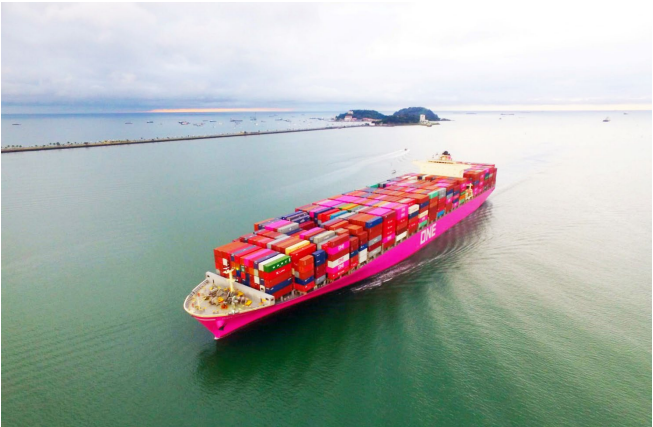Hapag-Lloyd will secure green financing for 24 large container ships ordered in October 2024. The new vessels have a total capacity of 312,000 TEUs, with a total investment of approximately $4 billion. The financing consists of four components. About $900 million of the acquisition cost will be covered by the company’s own funds. Two banks will provide a total of $500 million through bilateral mortgage loans. Additionally, $1.8 billion will be financed through three leasing structures, while $1.1 billion will be raised through a Sinosure-backed syndicated loan. The total financing covers approximately 80% of the investment, with loan terms ranging from 10 to 18 years. The financing will be conducted under Hapag-Lloyd’s Green Financing Framework, which aligns with the Loan Market Association (LMA) Green Loan Principles. An independent expert opinion from DNV confirms this compliance, as well as the high efficiency of the vessels and their alignment with EU classification standards.
Mark Frese, Hapag-Lloyd’s CFO and COO, stated: “We are continuously modernizing our fleet to provide high-quality services and achieve our ambitious decarbonization goals. The successful completion of several highly attractive financial transactions demonstrates the growing importance of green financing. Furthermore, we are pleased to finance a Chinese newbuilding project for the first time through the Sinosure transaction.”
Hapag-Lloyd is fully committed to achieving the 1.5-degree target set in the Paris Agreement. By 2030, the company aims to reduce the absolute greenhouse gas emissions of its fleet by approximately one-third compared to 2022, marking another step toward achieving net-zero emissions by 2045. The 24 new vessels, to be built in China, will feature state-of-the-art, low-emission, and highly fuel-efficient high-pressure LNG dual-fuel engines.
Additionally, these ships can operate on biomethane, which can reduce CO₂e emissions by up to 95% compared to conventional propulsion systems. The new vessels will also be capable of running on ammonia. Deliveries are scheduled between 2027 and 2029.

Last
Effective February 9: Premier Alliance Agreement Approved, Ushering in a New Era for the Shipping Market
The U.S. Federal Maritime Commission (FMC) has officially approved the Premier Alliance agreement, which will take effect on Febru

Next
ONE and LX Pantos Establish Joint Venture to Provide End-to-End Multimodal Transport Services
On February 4, Ocean Network Express (“ONE”) and LX Pantos announced the successful establishment of their joint venture, Boxlinks
